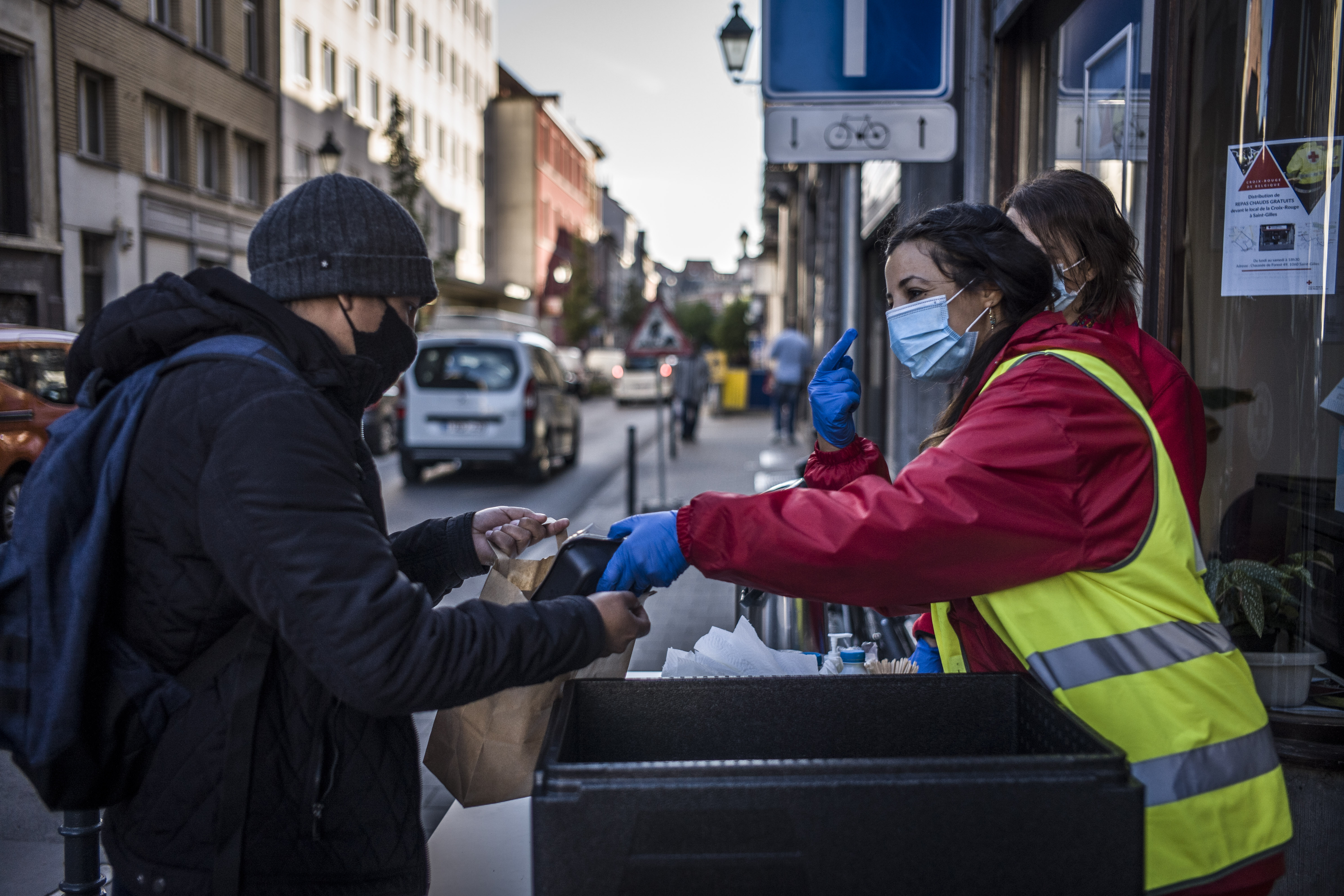How Red Cross societies across Europe are working to end homelessness
In January 2022, the Red Cross EU Office launched Red Cross Approach: Combatting Homelessness in Europe, a publication presenting our unique approach to combat homelessness, based on the activities and practices of National Red Cross Societies across Europe. It also represents the commitment of National Red Cross Societies to join forces with public authorities and other civil society partners to actively work towards ending homelessness by 2030.
Everyone deserves a home that is safe, secure, and affordable. Across Europe, 20 National Red Cross Societies respond to people who are experiencing homeless by providing accommodation, health services and assistance in accessing social protection and employment services, as well as psychosocial and material support.
Preventing homelessness through providing support services for people at risk
National Red Cross societies support people at risk of homelessness through addressing tenancy problems and underlying issues which may affect their housing. In Riga, colleagues from Latvian Red Cross offer temporary accommodation to families living in houses with unsuitable living conditions, unresolved rent issues and unaffordable rent. By identifying people at risk early, the Latvian Red Cross provides targeted support based on people’s needs, preventing an escalation of the situation such as potential eviction. In Paris and surroundings, the French Red Cross offers transitional accommodation to single mothers and their children living in unsuitable accommodation or at risk of sleeping rough during winter, while providing dedicated support for people to secure employment and long-term accommodation before they leave the centre.
Providing immediate assistance to people who find themselves homeless
National Red Cross Societies respond to the needs of people who are homeless without discrimination, ensuring their access to accommodation, social protection, psychosocial and material support. In Copenhagen, the Danish Red Cross provides healthcare, dental care, midwifery, and physiotherapy to migrants without a valid residence permit for whom accessing a general practitioner is not an option. Through their outreach work, in 2020, colleagues from the Spanish Red Cross in the Basque Country started offering long-term solutions for people that were unhoused during the beginning of the pandemic, working on the goal that no one should go back to living on the streets.

Empowering and supporting people to exit homelessness
National Red Cross Societies are in direct contact with people experiencing homelessness to create the right support to help them access housing. They do this by developing individual support plans which address needs in a holistic way. The Italian Red Cross in Benevento, with support of EU funding, operates a housing-first project for people experiencing homelessness to support their pathway towards social integration. Mobile teams help identify potential beneficiaries of the programme who then will be supported by a multidisciplinary team composed of social, legal, health and psychological professionals. Meanwhile, the Luxembourg Red Cross aims to empower people in a holistic manner, executed through an innovative and collaborative approach that provides security for property owners and social support for tenants during the first year of the lease.
Homelessness continues to be a growing social crisis across the EU, an issue which has only been further worsened by the COVID-19 pandemic and the conflict in Ukraine. The Lisbon Declaration and the launch of the European Platform on Combatting Homelessness (EPOCH) confirmed the commitment by the EU and Member States to combat homelessness through policies and actions that place access to affordable and sustainable housing at their centre.
At the Red Cross, we believe that housing is a fundamental right. A good quality and affordable home should be provided to people who need it, without barriers and obstacles. The Red Cross is committed and will continue to support, provide care, and promote dignity when it is needed.
This article is based on a guest blog for World Habitat by our colleague Luís Vilachá Fernández, Policy and Programme Officer (Social Inclusion).
For media inquiries, please contact Eva Oyón on: eva.oyon@redcross.eu or +32 2 235 09 22

